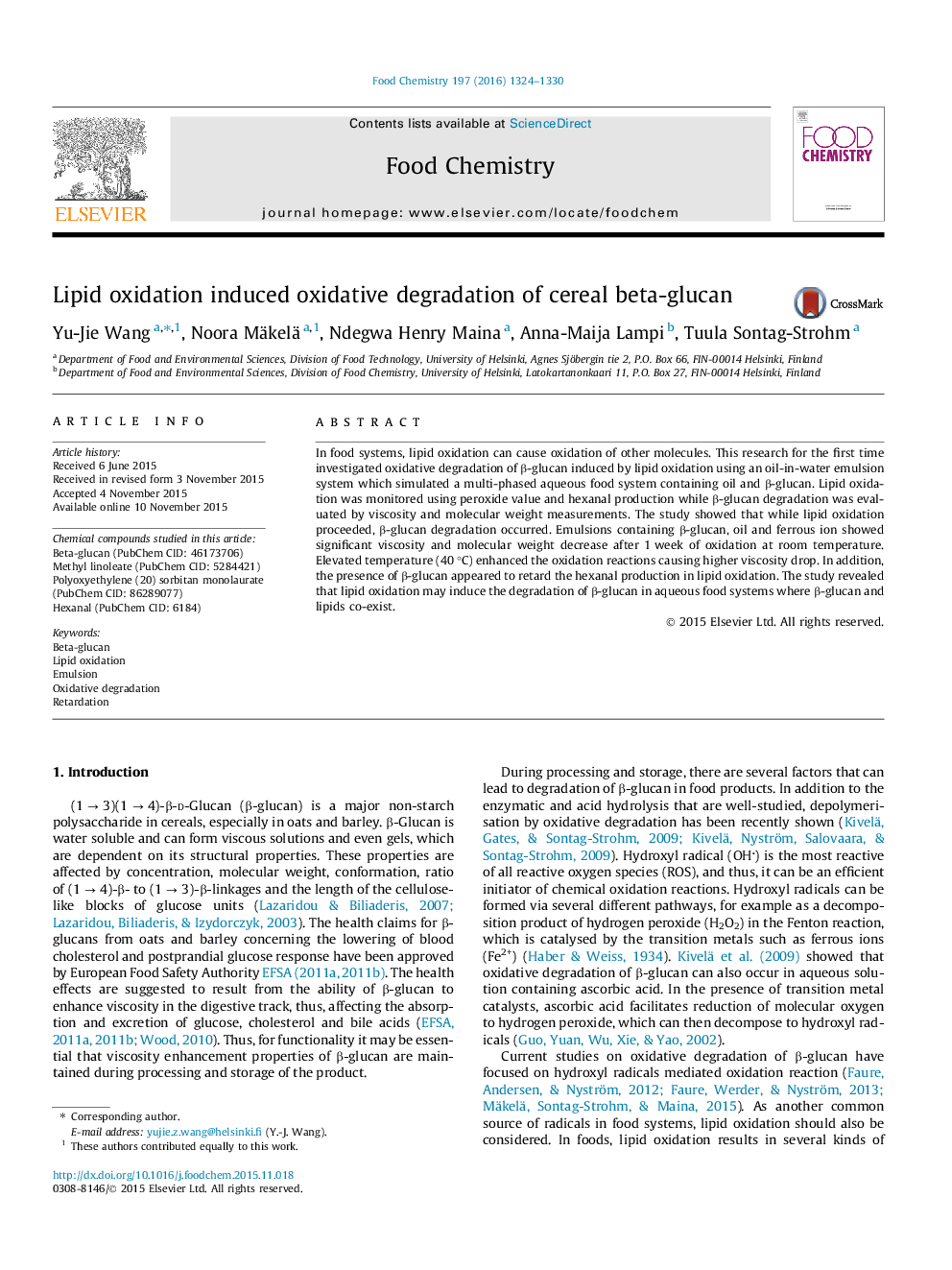| Article ID | Journal | Published Year | Pages | File Type |
|---|---|---|---|---|
| 1183363 | Food Chemistry | 2016 | 7 Pages |
•Lipid oxidation induced degradation of β-glucan in an emulsion model.•More oxidised oil resulted in more β-glucan degradation.•Ferrous ion and elevated temperature (40 °C) enhanced the β-glucan degradation.•β-Glucan appeared to retard lipid oxidation.
In food systems, lipid oxidation can cause oxidation of other molecules. This research for the first time investigated oxidative degradation of β-glucan induced by lipid oxidation using an oil-in-water emulsion system which simulated a multi-phased aqueous food system containing oil and β-glucan. Lipid oxidation was monitored using peroxide value and hexanal production while β-glucan degradation was evaluated by viscosity and molecular weight measurements. The study showed that while lipid oxidation proceeded, β-glucan degradation occurred. Emulsions containing β-glucan, oil and ferrous ion showed significant viscosity and molecular weight decrease after 1 week of oxidation at room temperature. Elevated temperature (40 °C) enhanced the oxidation reactions causing higher viscosity drop. In addition, the presence of β-glucan appeared to retard the hexanal production in lipid oxidation. The study revealed that lipid oxidation may induce the degradation of β-glucan in aqueous food systems where β-glucan and lipids co-exist.
